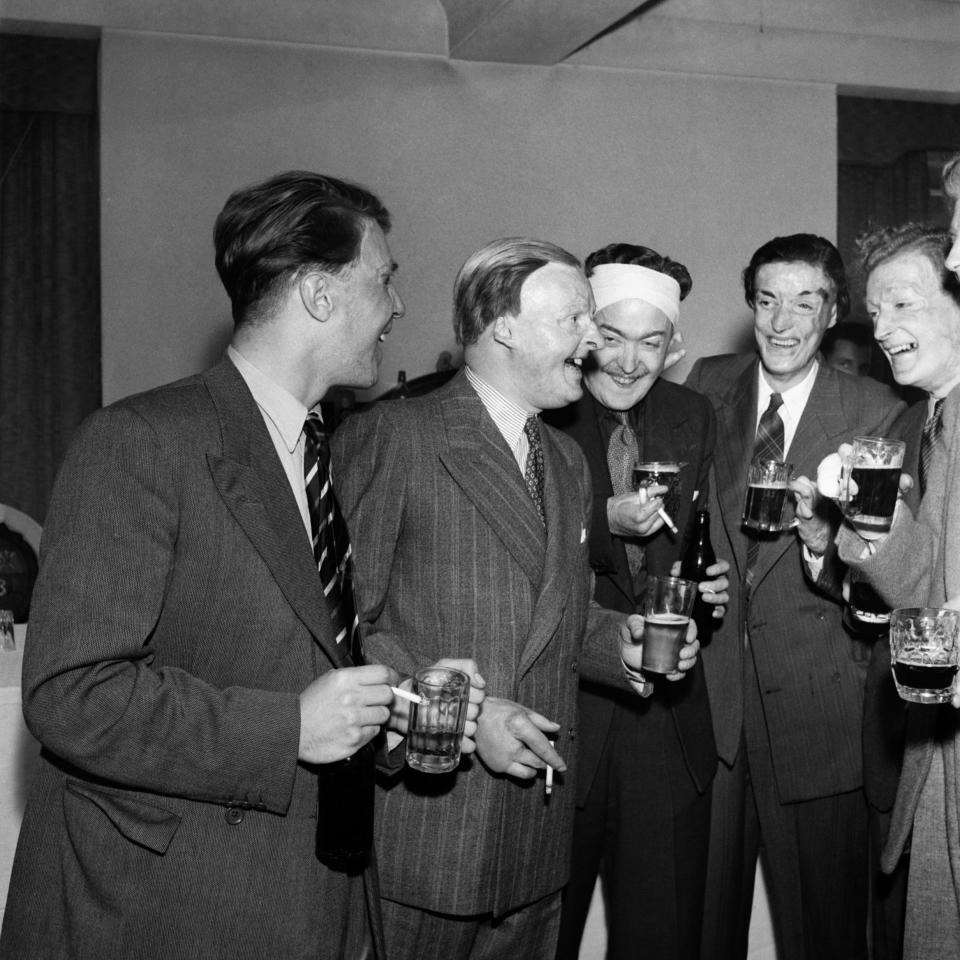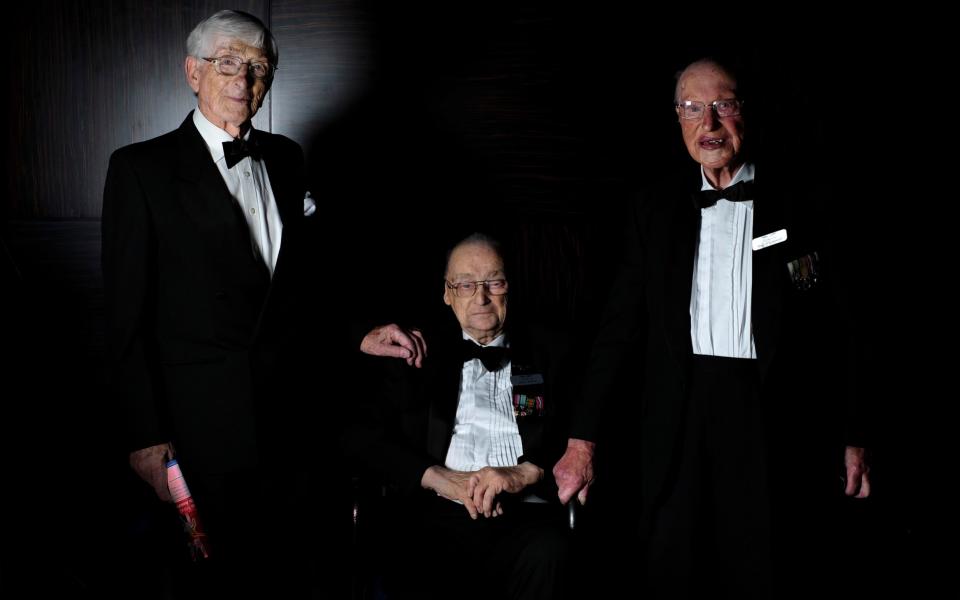Story of maverick WW2 'Guinea pig' surgeon to be told on big screen for first time

In life, he was the maverick surgeon best known for saving the lives of the 649 Second World War “guinea pigs”, pioneering plastic surgery in his own inimitable fashion and making history along the way.
Now, seven decades after he transformed the lives of his RAF “boys”, the extraordinary Sir Archibald McIndoe is to finally be honoured on the big screen, with Richard E Grant lined up to play him for a new generation.
Sir Archibald's unique contribution to the war effort, and medical history, is to be dramatised for cinema in a project due to begin filming in February.

His daughter, who recalls her smoking, drinking, rule-breaking late father as enjoying life to the full, said he would have been pleased to know he would be immortalised on film.
The family said they had been informed about various attempts to make films over the years, which have not come to fruition.
This version, however, has a script, director and lead actors lined up, and is this week being offered for sale around the world at the Cannes Film Festival.

The film will be called The Guinea Pig Club after the society founded by the men treated by Sir Archibald.
It is described as telling “the true story of maverick surgeon Archie McIndoe, who, at the height of World War II, defied the British establishment with his radical methods aimed at healing severely burned bodies — and more importantly the tortured souls — of Britain's heroic Royal Air Force pilots.
“In so doing, he risked his career, reputation and marriage.”
Richard E. Grant is set to take the starring role while Jeremy Irvine, the young British actor who rose to fame in War Horse, will take the part of the dashing Richard Hillary, a Second World War fighter pilot who was shot down and received extensive burns before bailing out in the North Sea.
At a glance | 100 years of plastic surgery
Hillary, one of best-known members of the Guinea Pigs, spent three months being treated and rehabilitated by McIndoe before returning to action, before being killed during a night flight crash in 1943.
His contribution to the war effort was considered so significant that he, along with Sir Archibald, now has a memorial statue in his honour.
Sam Neill is to play a fictional member of the medical establishment, thought to provide the face of bureaucracy to McIndoe’s hero.
Mimi Steinbauer, whose company Radiant Films International will launch sales in Cannes. called it “an uplifting and heroic story, coupled with moments of humor to deliver a thoroughly entertaining experience”.
Sir Archibald’s grandson Gordon Bebb,who is chairman of trustees at the Blond McIndoe Research Foundation set up in honour of the surgeon’s work, said that there remains a “question mark” over exactly how the story will be told and how much dramatisation there might be.
Saying it would allow a new generation to understand McIndoe’s work and the legacy of his patients,, he added: “I am always an optimist about these things and it is a project, I suspect, from the heart. It’s a fantastic story.”
Adonia Montford Bebb, one of Sir Archibald’s two daughters who will turn 90 next month, said her father would be pleased to think of his “guinea pigs” on film.
She described how, born in New Zealand, he “didn’t know the rules, and when he did, he broke them”, instigating drinking on his wards in East Grinstead to cheer his patients up, insisting they return to uniform to restore their pride, and employing only the prettiest nurses to encourage them.
“He treated them like human beings, which no-one else did,” she said. “He was a man of enormous energy. He lived a life and he never let up.
"Nobody had known how to help these burnt airmen who were falling out of the sky. He was a great man.”
The men he saved with reconstructive surgery, totalling 649, went on to form The Guinea Pig Club, a social and support network for survivors of the Second World War.
It went on to meet regularly until 2007, with the Duke of Edinburgh as president, with just a handful of surviving members left today.

 Yahoo News
Yahoo News 